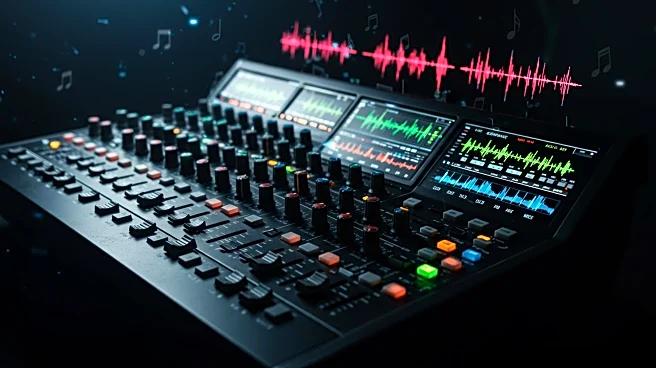What's Happening?
Rauw Alejandro, a prominent Puerto Rican artist, is facing a lawsuit filed by BM Records, a Florida-based reggaeton label and distributor. The lawsuit alleges that Alejandro's 2022 album 'Saturno' contains multiple unlicensed samples from tracks by reggaeton legend DJ Playero. BM Records claims ownership of DJ Playero's catalog and asserts that songs such as 'DE CAROLINA,' 'PANTIES Y BRASIERES,' 'DEJAU',' and 'PUNTO 40' on Alejandro's album use samples from Playero's works without proper licensing. The lawsuit seeks damages of up to $150,000 per infringed song, citing violations of the Copyright Act. Despite Playero being credited on several tracks and promoting the album, BM Records maintains its claims. Alejandro has responded, stating he believed the songs were cleared by his previous label, Duars Entertainment, which had a licensing agreement with Sony Music Latin.
Why It's Important?
This lawsuit highlights ongoing issues in the music industry regarding copyright and licensing, particularly in the reggaeton genre. The outcome could have significant financial implications for Rauw Alejandro and potentially affect his reputation. It also underscores the complexities artists face in ensuring all samples are properly licensed, which can impact their creative processes and collaborations. The case may influence how record labels and artists handle sample clearances in the future, potentially leading to more stringent checks and balances. Additionally, the lawsuit reflects broader industry challenges in managing intellectual property rights, which can affect artists, producers, and labels financially and legally.
What's Next?
The legal proceedings will determine whether Alejandro is liable for the alleged copyright infringements. If the court rules in favor of BM Records, Alejandro may face substantial financial penalties. The case could prompt other artists and labels to re-evaluate their sample clearance processes to avoid similar legal issues. Industry stakeholders, including record labels and legal experts, will likely monitor the case closely, as its outcome could set a precedent for future copyright disputes in the music industry.
Beyond the Headlines
The lawsuit raises questions about the ethical responsibilities of artists and labels in respecting intellectual property rights. It also highlights the cultural significance of reggaeton and the importance of preserving its history and contributions through proper acknowledgment and compensation. The case may encourage a dialogue within the music community about balancing creative freedom with legal obligations, potentially leading to more collaborative efforts to protect artists' rights while fostering innovation.










